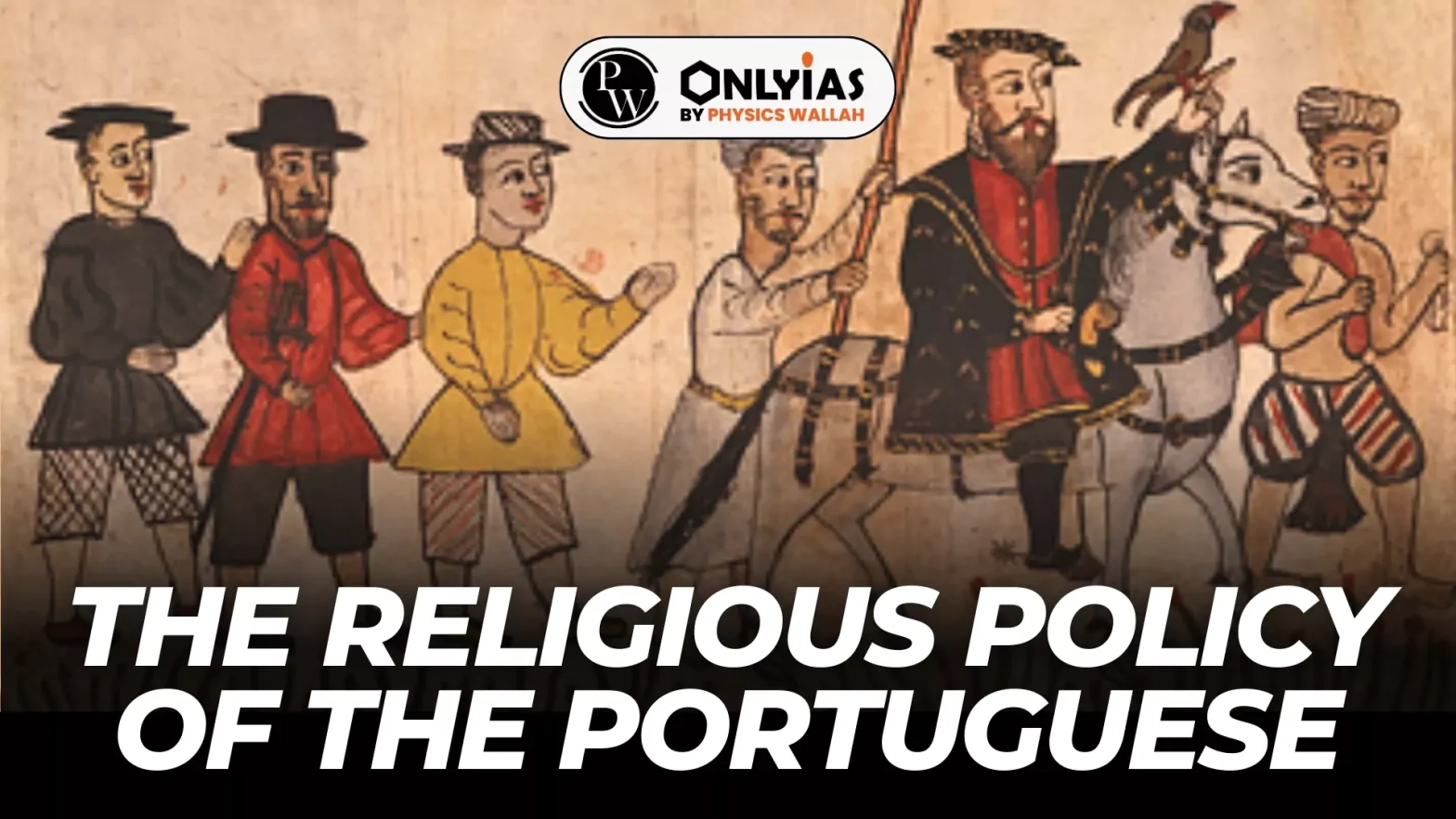
Pope Alexander VI issued a bull advising kings to “send to the said lands and islands good men who fear God and are learned, skilled, and expert to instruct the inhabitants in the Catholic faith and good morals.” The Catholic Church’s fundamental requirement for salvation appears to be a powerful motivating element in its religious policies. Portugal’s religious policies were utilized to Christianize the population wherever they went.
Methods and Strategies used by the Portuguese for religious conversion are provided in the table below:
|
Methods and Strategies used by the Portuguese for Religious Conversion |
|
| Mixed Marriages |
|
| Job Offerings |
|
| Direct Evangelism |
|
| Forced Conversions |
|
| Education And Religious Instruction |
|
|
#PW-OnlyIAS Edge |
|
Attempt to Convert Mughals
|
In conclusion, the Portuguese employed a variety of methods and strategies to promote religious conversion during their colonial rule. These included mixed marriages, job offerings, direct evangelism, forced conversions, and educational initiatives. While some conversions were voluntary, others were coerced through the use of governmental and military power. The Portuguese also attempted to convert Mughal emperors and their courts, but the relationship faced challenges and conflicts over time. The religious policies of the Portuguese left a lasting impact on the religious landscape of the regions they governed.
<div class="new-fform">
</div>